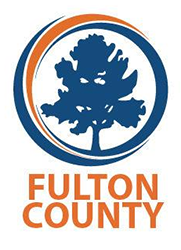Court Related Mental Health
Court Related Mental Health
- Diversion and deflection are critical strategies for reducing unnecessary involvement in the criminal justice system. Deflection focuses on early intervention by connecting individuals to community-based mental health and substance use services before any formal legal action is taken. This approach reduces reliance on the criminal justice system to address behavioral health crises and promotes access to timely care.
- Diversion, in contrast, occurs when an officer has probable cause to arrest someone but recognizes that the underlying issue is rooted in substance use, mental illness, or extreme poverty. Instead of booking the individual, the officer can offer a diversion opportunity—linking them to supportive programs designed to address their specific needs and reduce the likelihood of future legal involvement.
Diversion Services
Policing Alternatives and Diversion Initiative
BHDD continues to play an active role with Policing Alternatives and Diversion Initiative (PAD). In collaboration with the Atlanta Police Department, the Pre-arrest diversion initiative gives Atlanta police officers the discretion to divert a person from arrest by offering consent-based supportive services throughout the City of Atlanta. A PAD Care Navigation team either meets the officer at the scene and immediately begins working with a diverted participant or meets the diverted person at the Center for Diversion and Services. Priority participants are:
o Impacted by racial disparities in arrests
o Multiple contacts with criminal legal system
o Excluded from other services
o Unmet mental health needs
o Substance use and abuse
o Extreme poverty
Policing Alternatives and Diversion Initiative (PAD) provides case management, linkage to care, and participant advocacy. For more information about the Pre - Arrest Diversion program, visit: Pre-Arrest Diversion
Youth Resiliency Program (YRP) Youth Resiliency Program is a di In collaboration with the Fulton County Juvenile Court, the Youth Resiliency Program (YRP) follows a two-pronged approach to support at-risk youth. The first component serves as an early intervention for schools and communities, specifically targeting chronically absent or truant youth before a CHINS (Child in Need of Services) case is filed. Using a Wraparound Services Model, the program delivers a holistic, family-centered strategy focused on improving outcomes in three core areas: family/home, school, and personal/community.
The second component is a structured afterschool diversion program, offering intensive case management, individual and family therapy, group activities, academic tutoring, and psychoeducation workshops. Youth also engage in skill-building sessions that focus on conflict resolution, anger management, and independent living skills. Emphasizing family involvement and community engagement, the program connects participants with mentoring opportunities, educational resources, and social peer activities to support long-term success and resilience.
Deflection Services
The Fulton County Deflection and Recovery (FDR) Outreach Team provides proactive, face-to-face engagement with individuals experiencing mental health and substance use challenges who are at risk of entering the criminal justice system. The team meets people where they are—on the streets, in encampments, under bridges, in motels, shelters, libraries, and other public spaces—to offer immediate support and connection to care.
Services include direct support or referrals to:
· Mental health assessments
· Recovery housing referrals
· Connection to community resources and support systems
· Coordinated Entry housing assessments
· Referrals to housing and shelter programs
· Access to medical care and medication services
· Substance use treatment and recovery support
· Assistance with obtaining vital documents (e.g., photo ID, birth certificate, Social Security card)
· Referrals for food assistance and meal services
· Distribution of hygiene kits
· Family reunification services
· ...and more comprehensive supports tailored to individual needs
The FDR program also plays a critical role in overdose prevention by equipping law enforcement and first responders with Naloxone and fentanyl test kits, and by offering targeted overdose prevention trainings. Through early intervention, harm reduction, and comprehensive community support, FDR works to deflect individuals from the justice system and promote long-term recovery, wellness, and stability.


